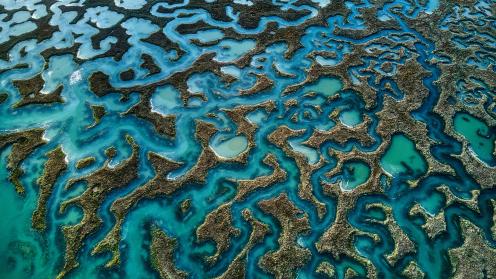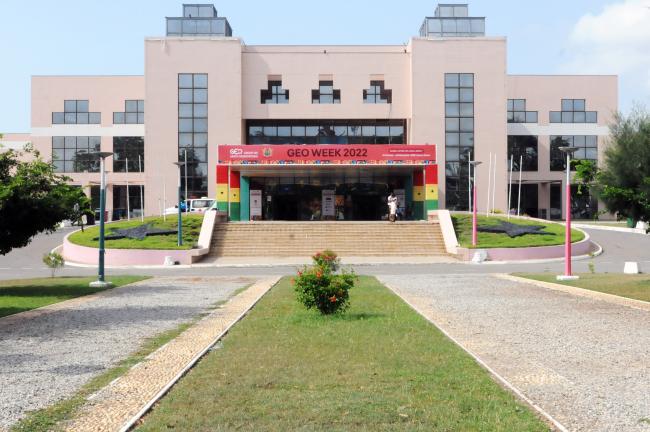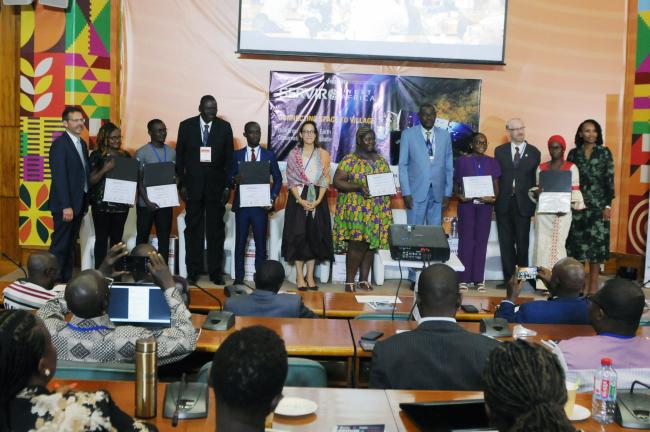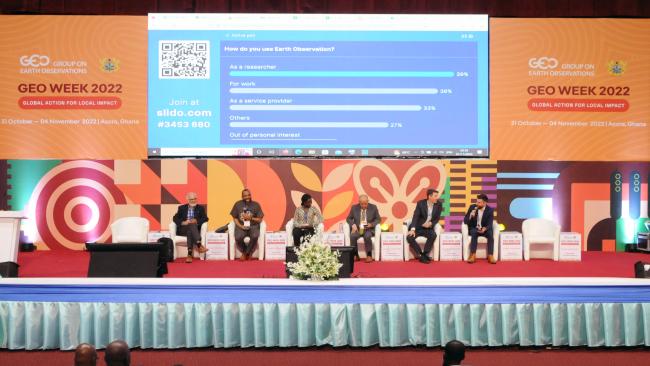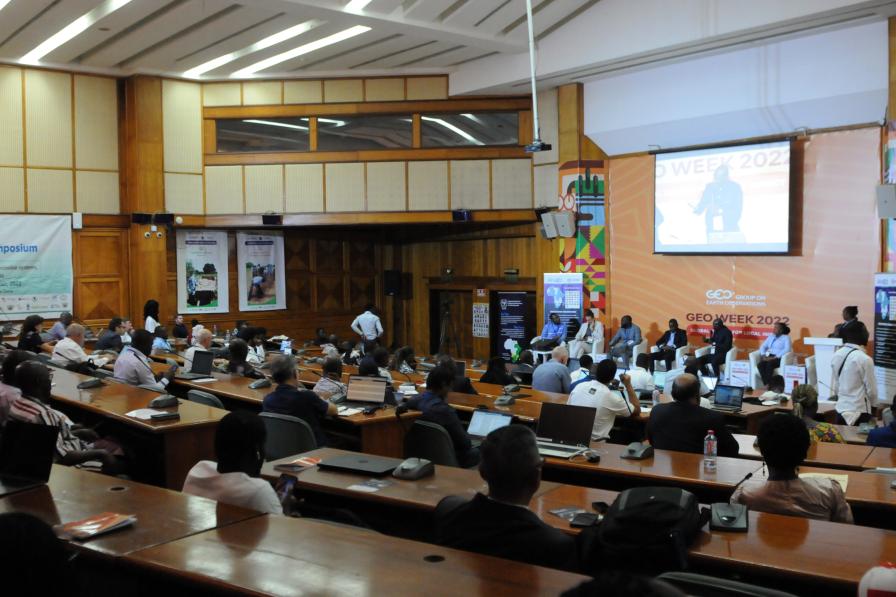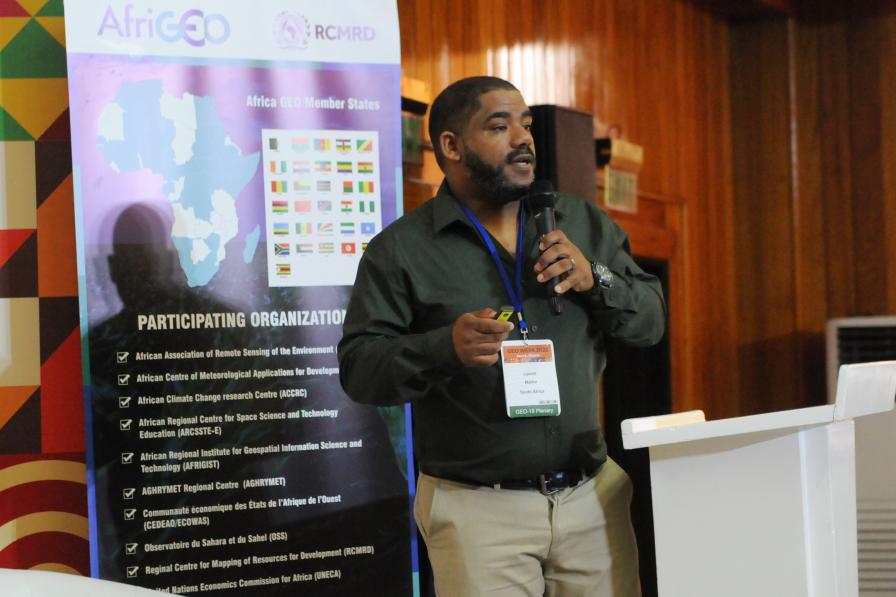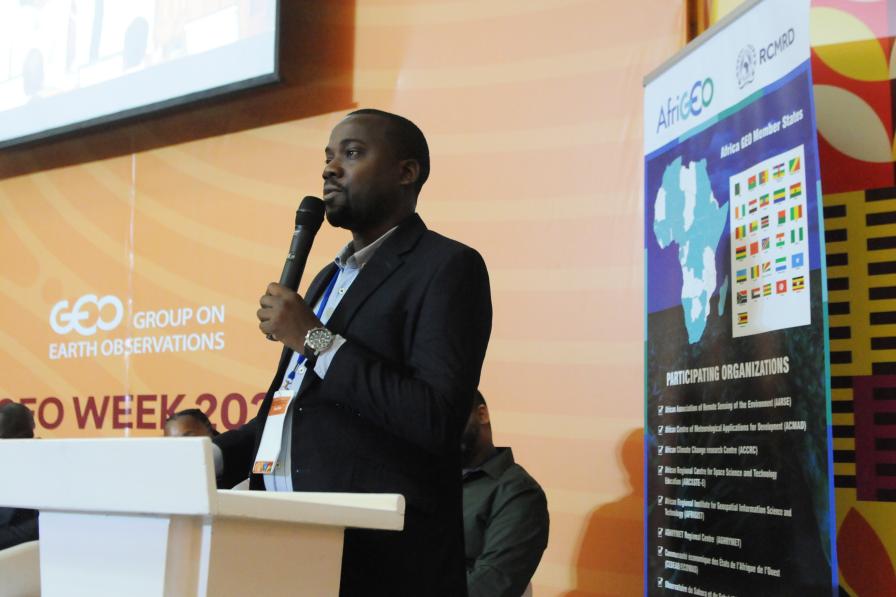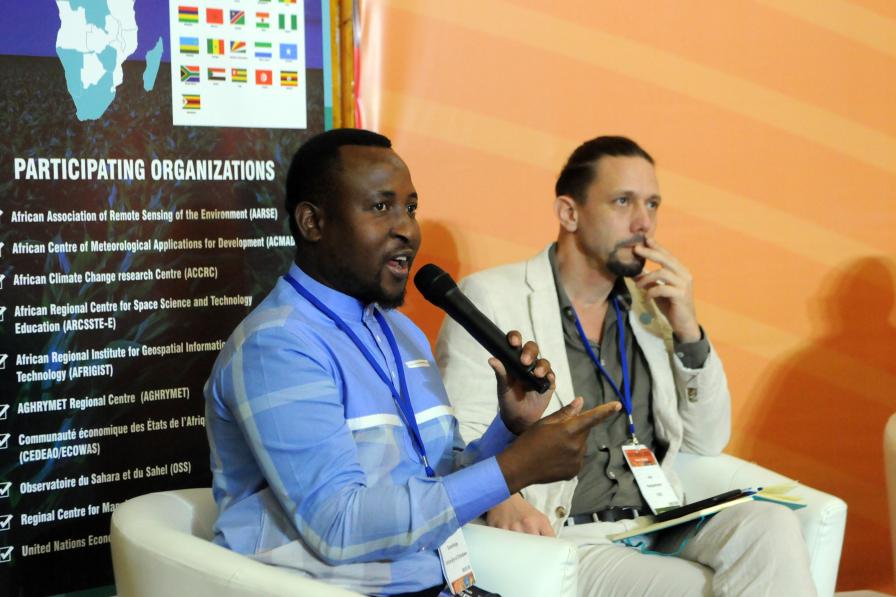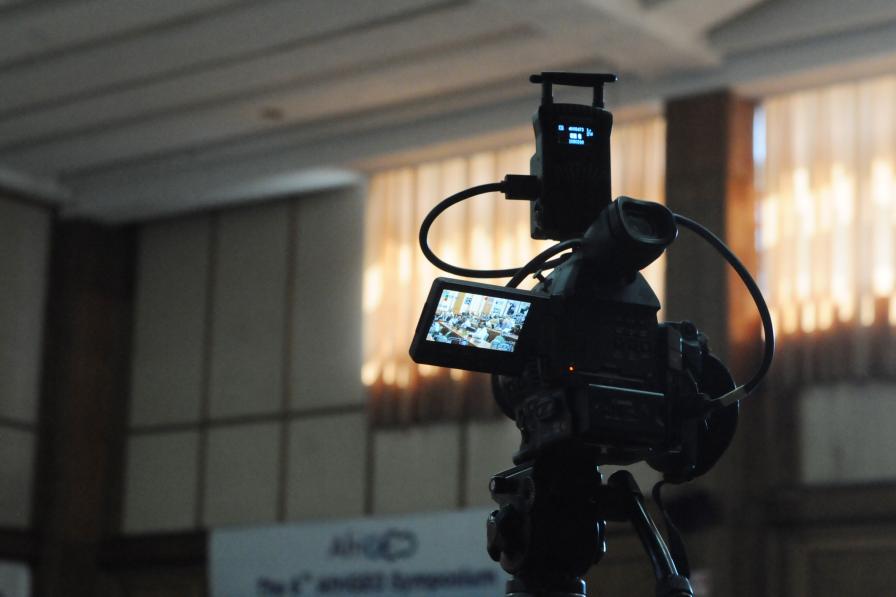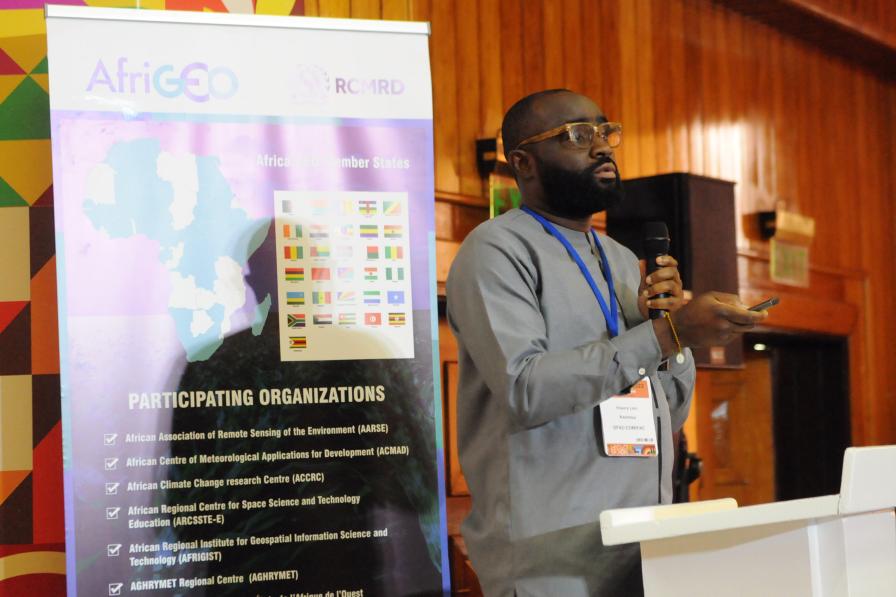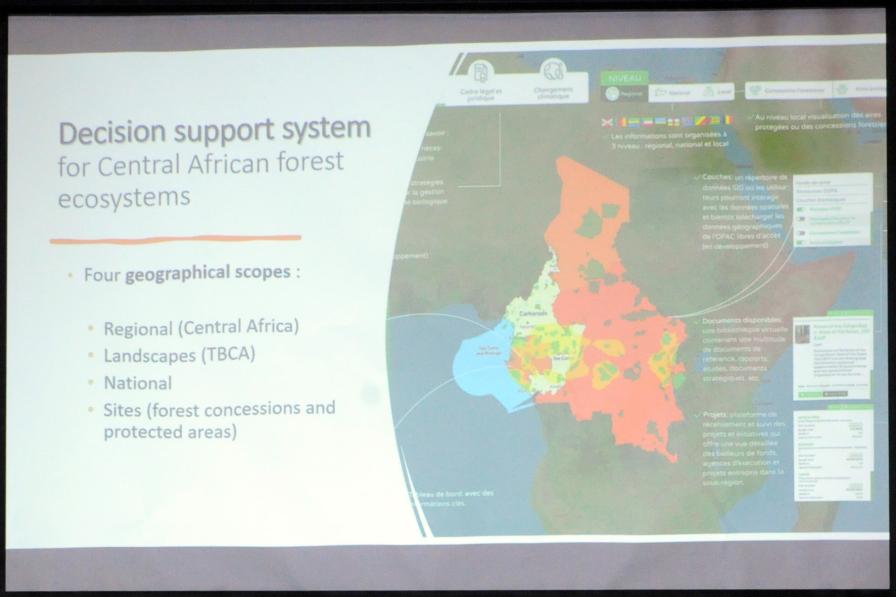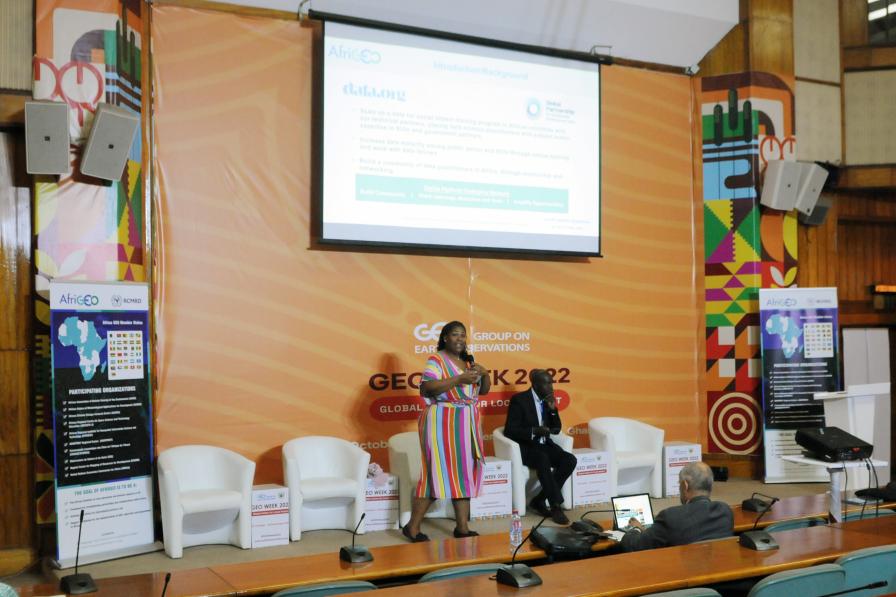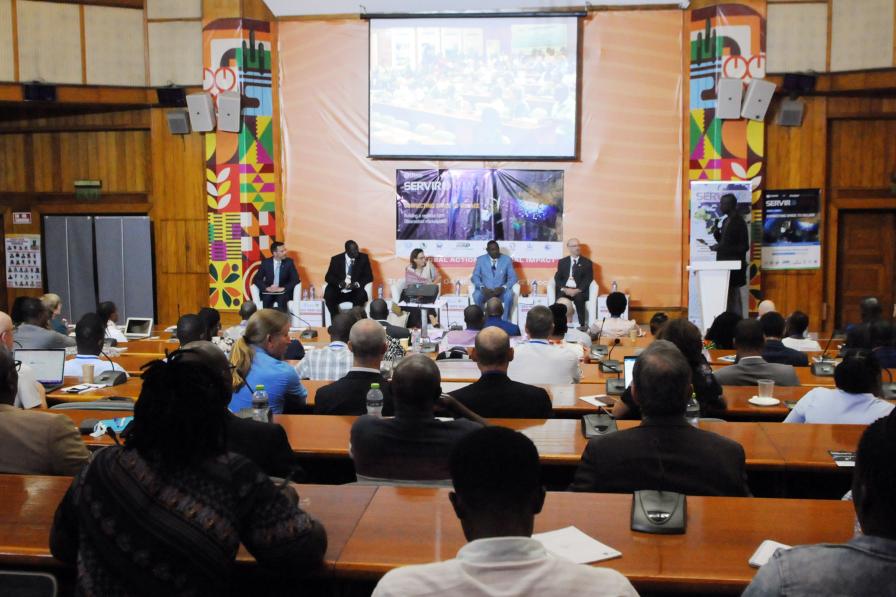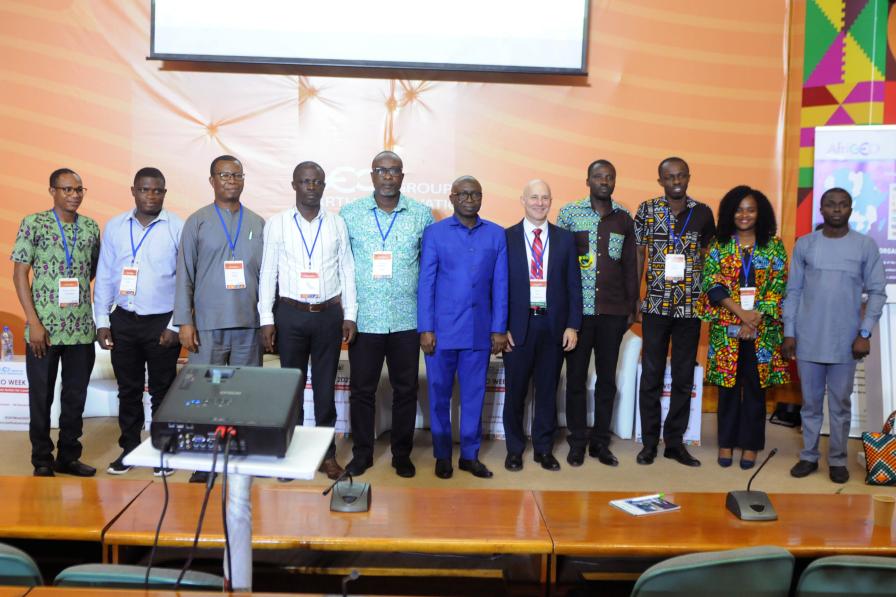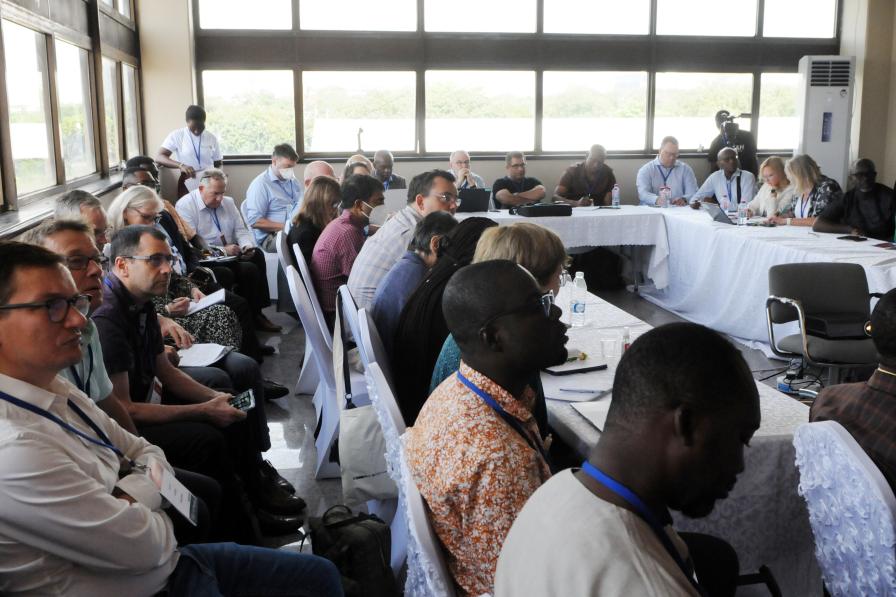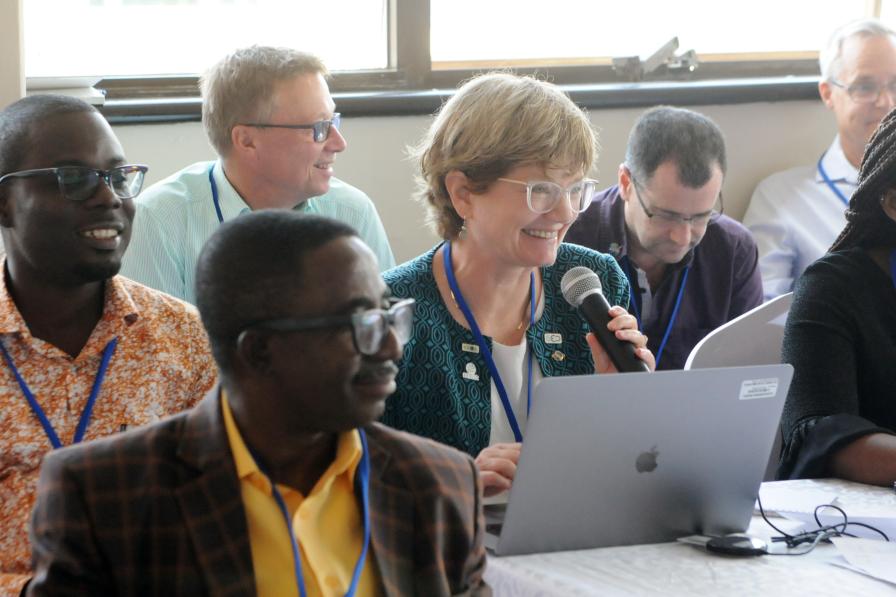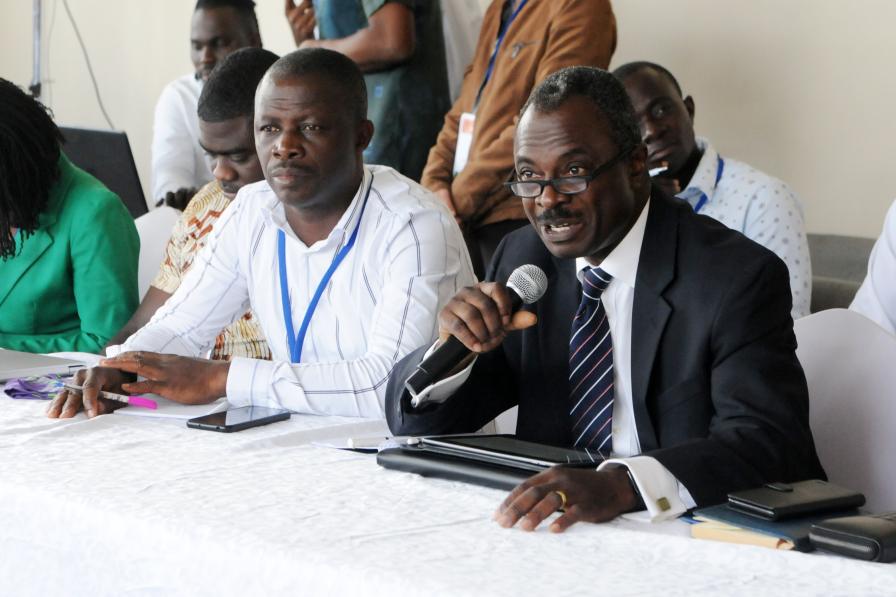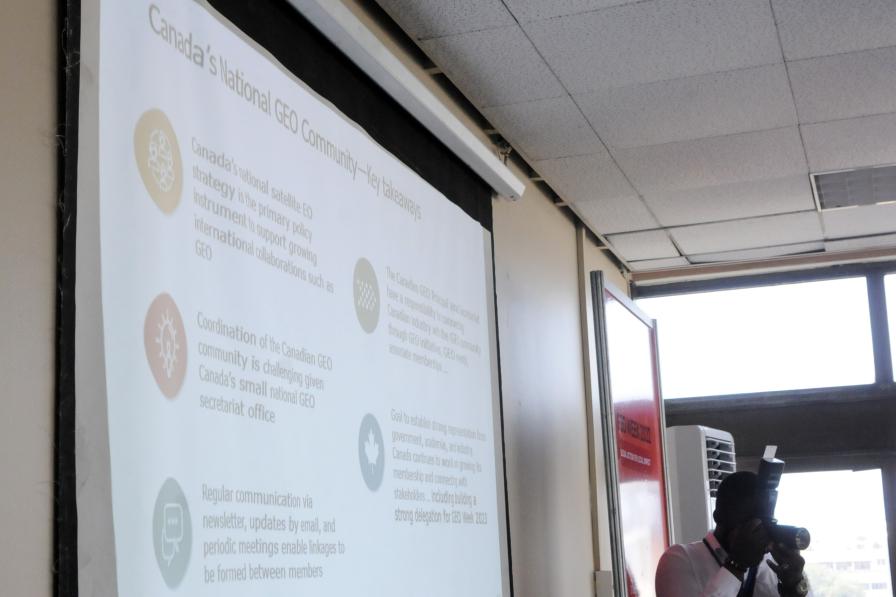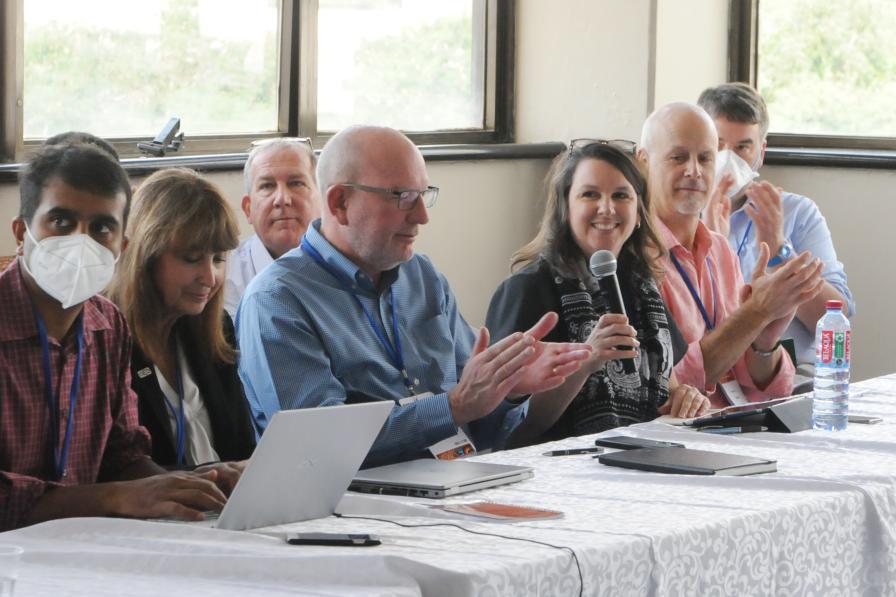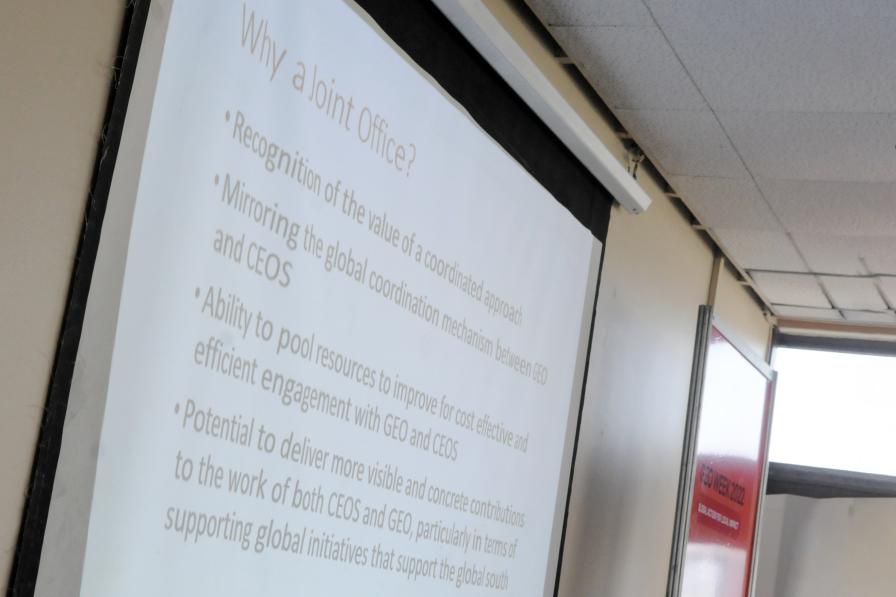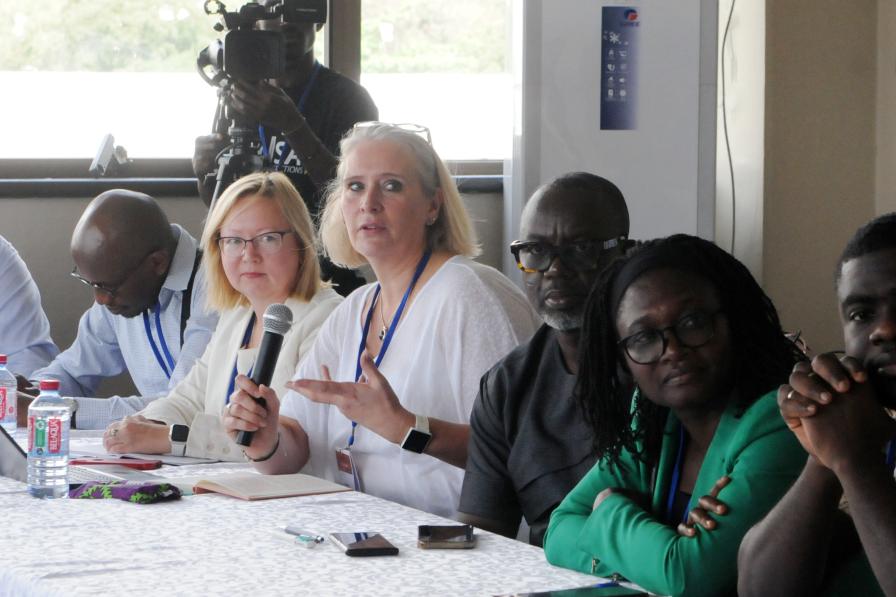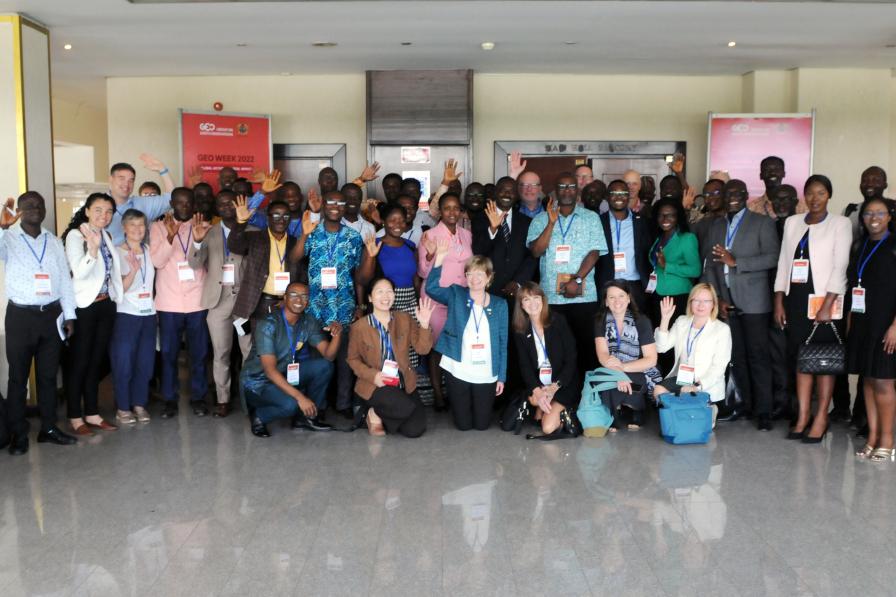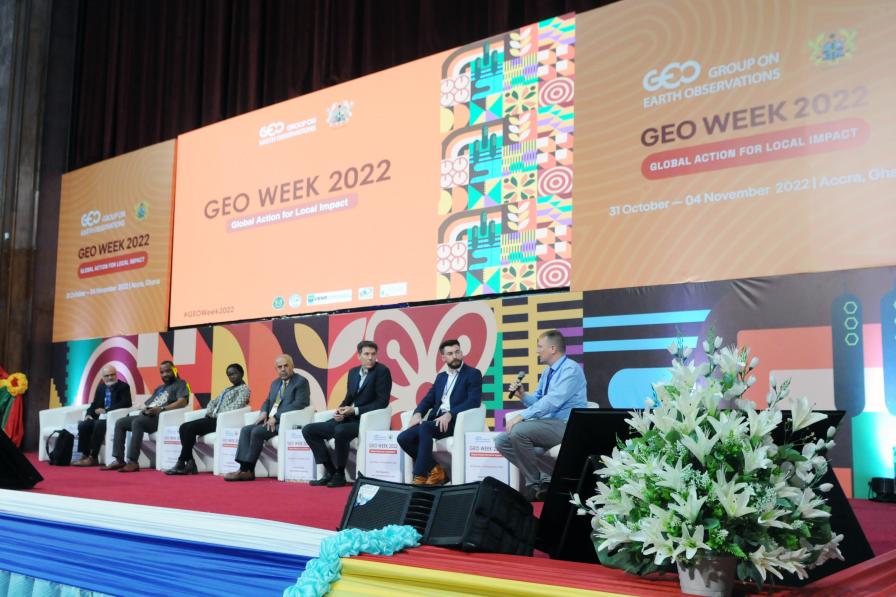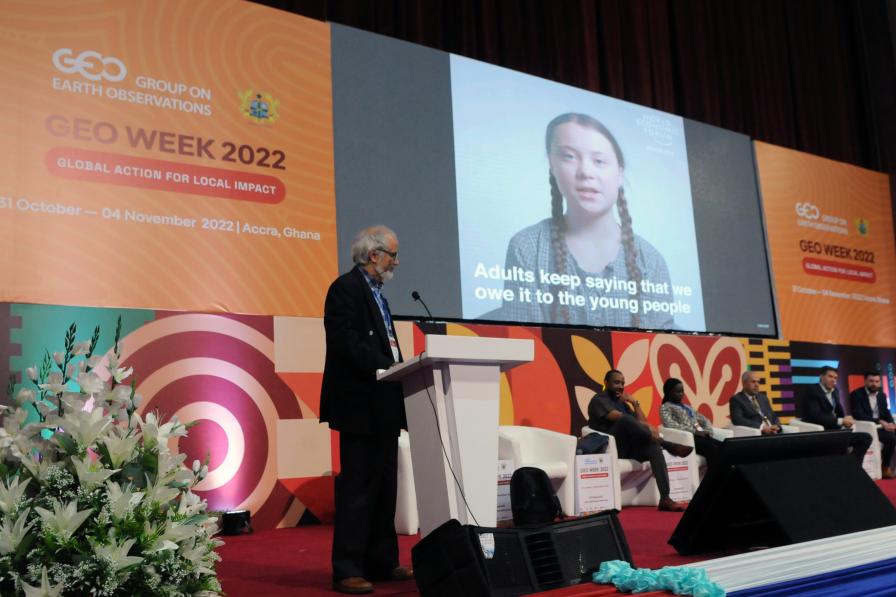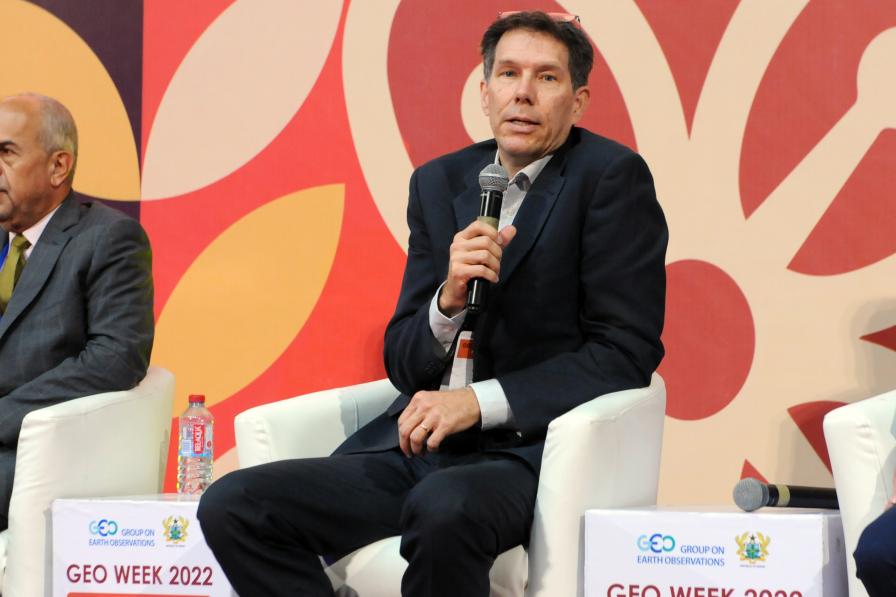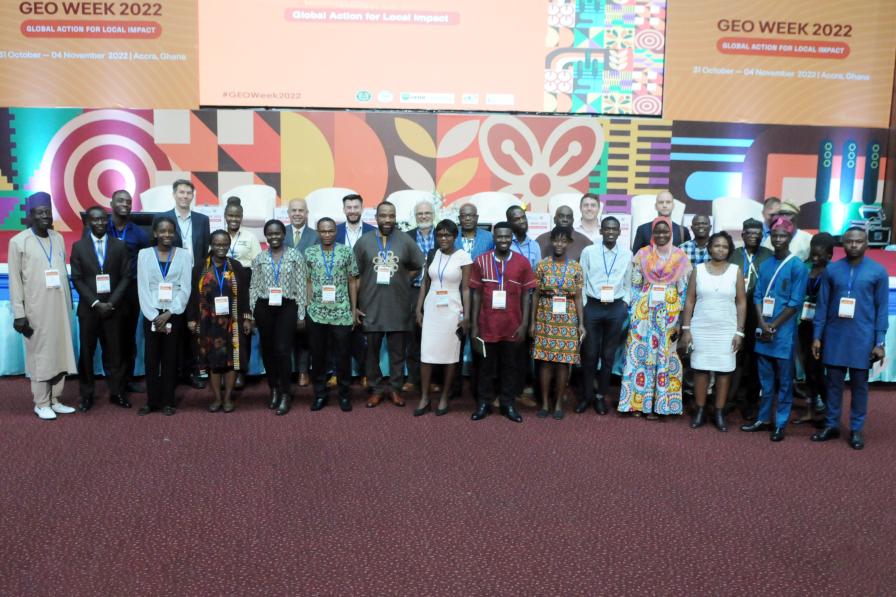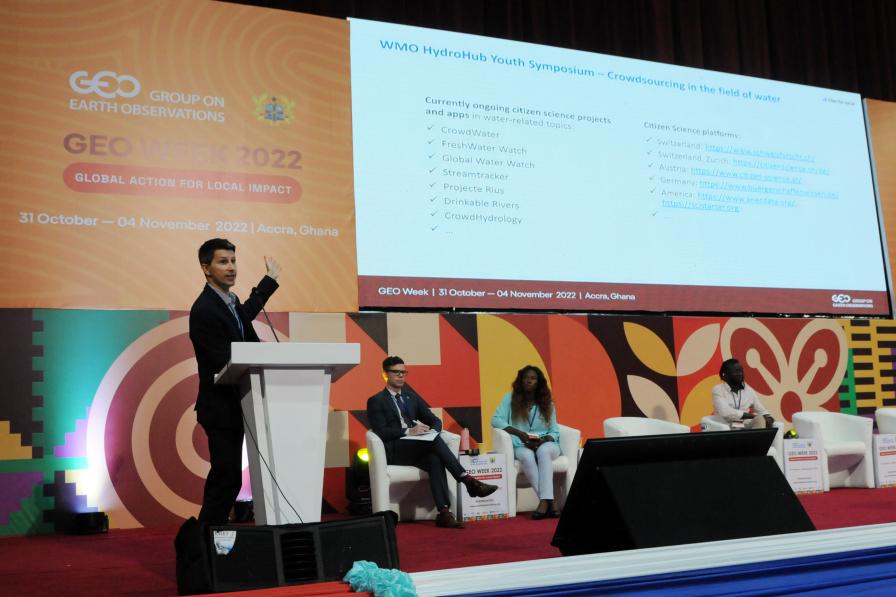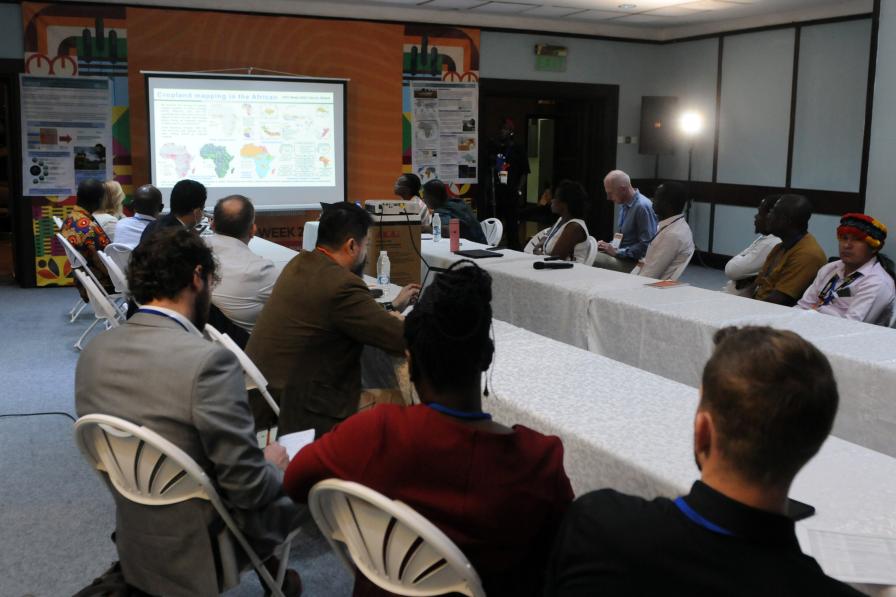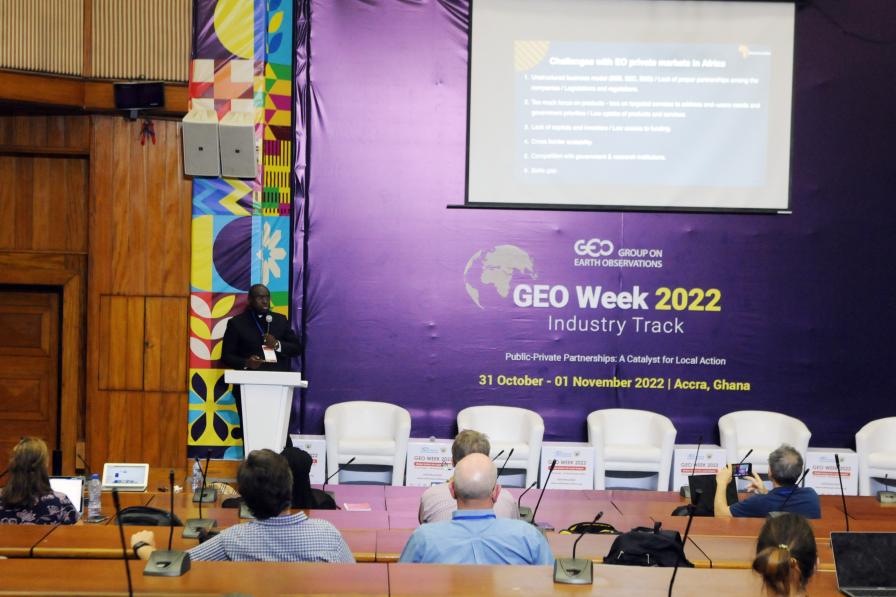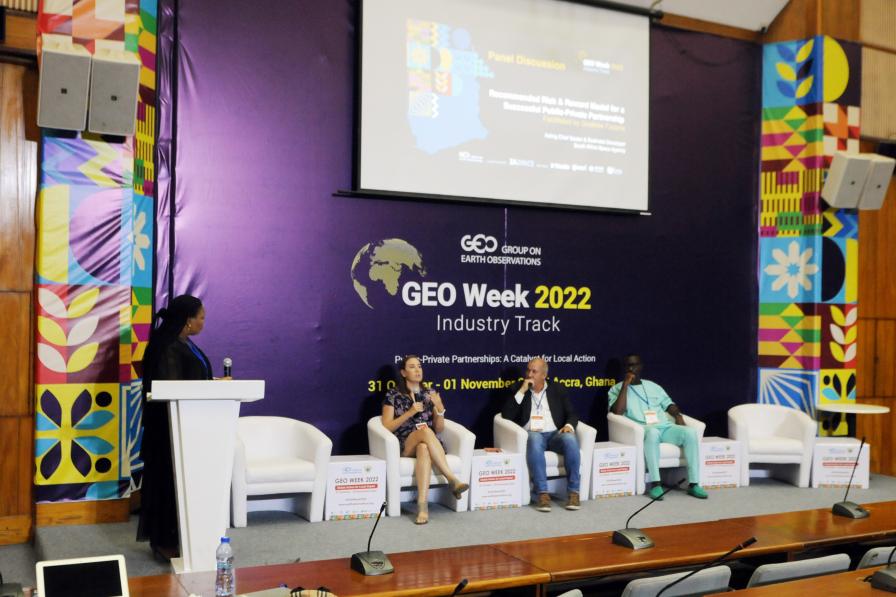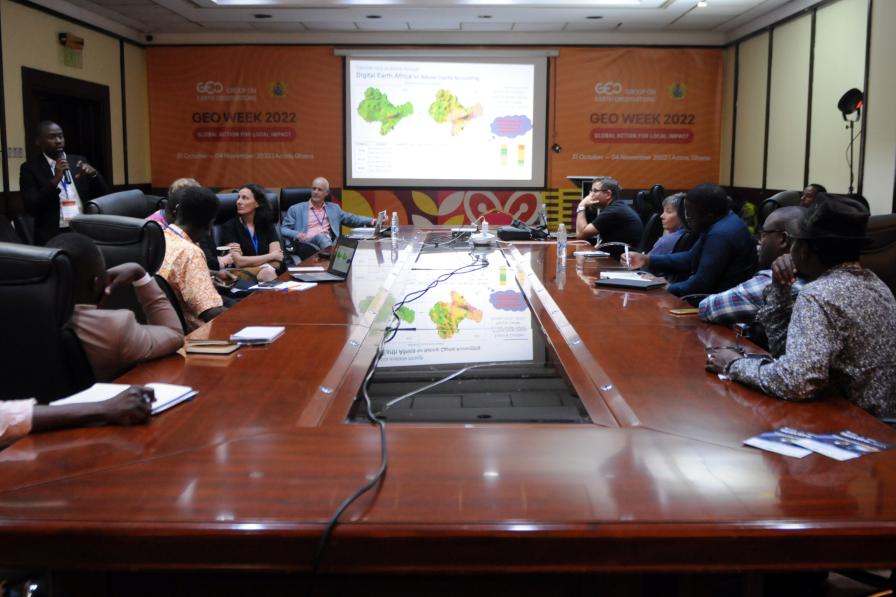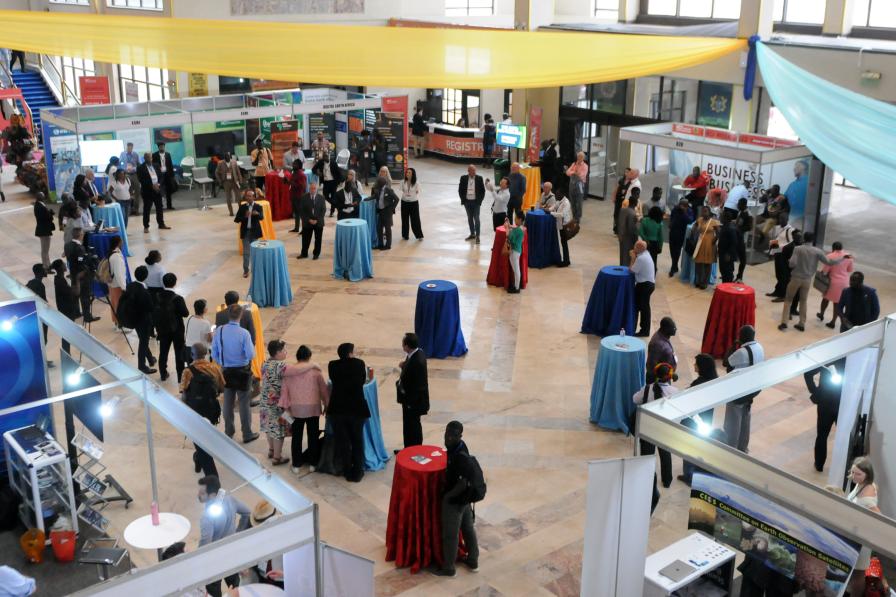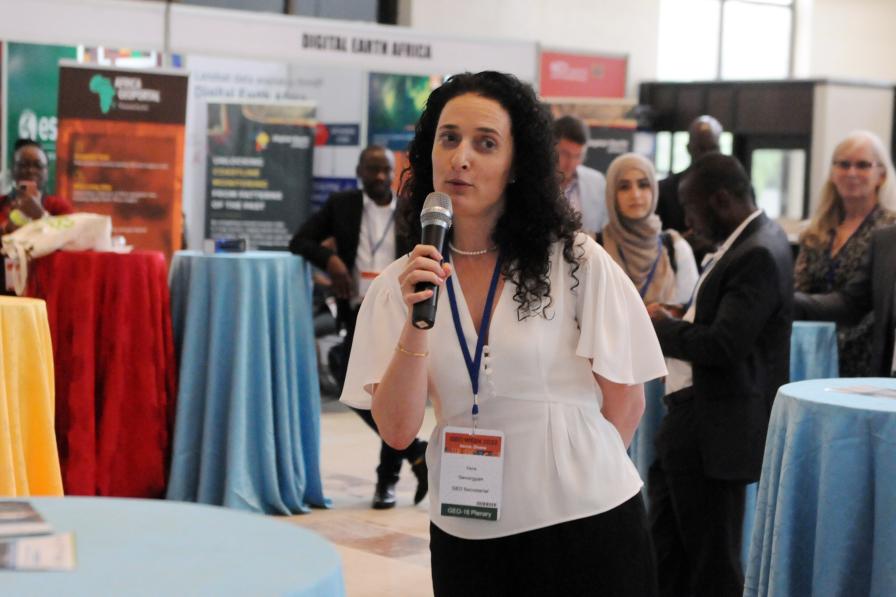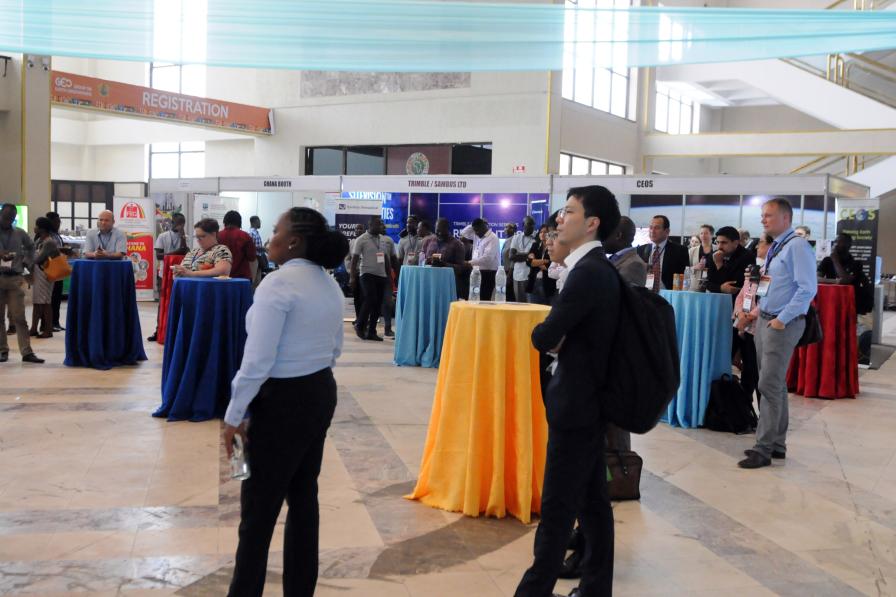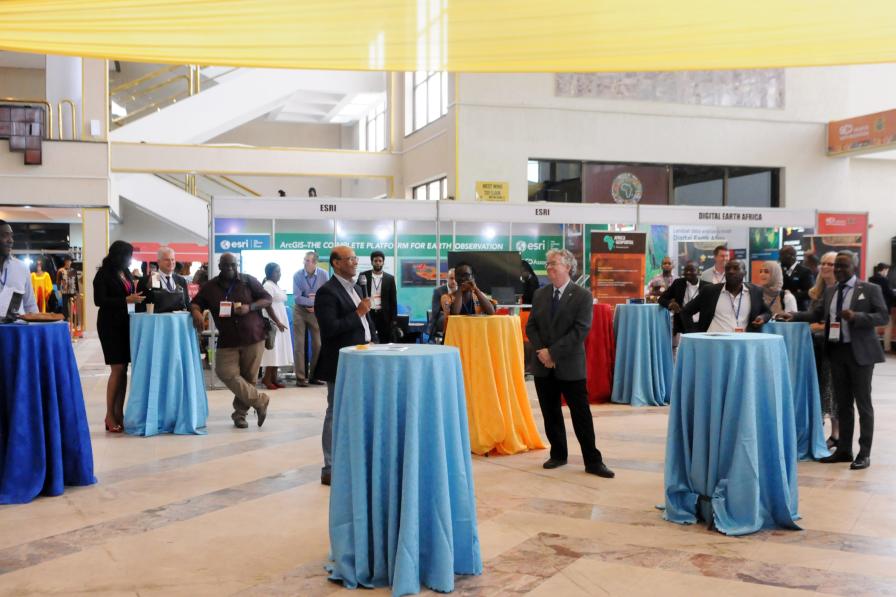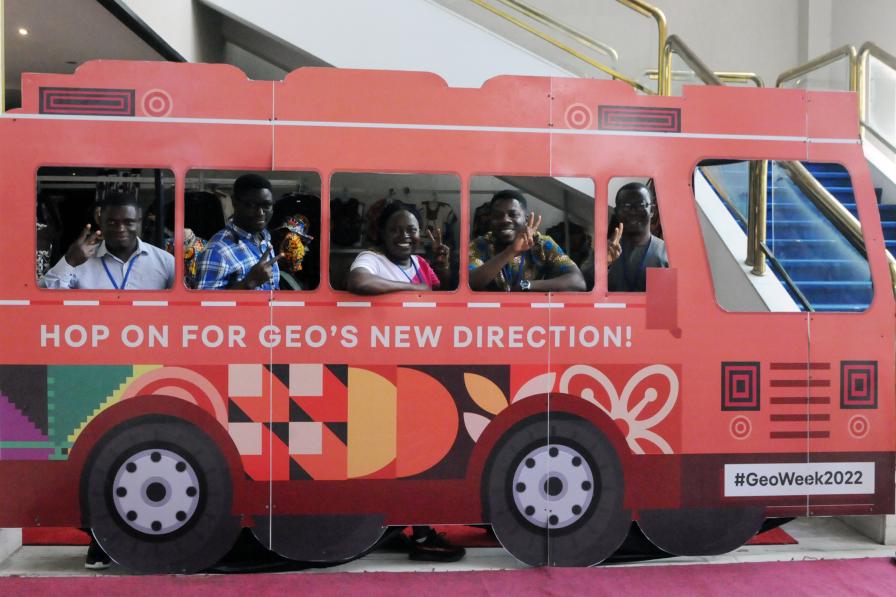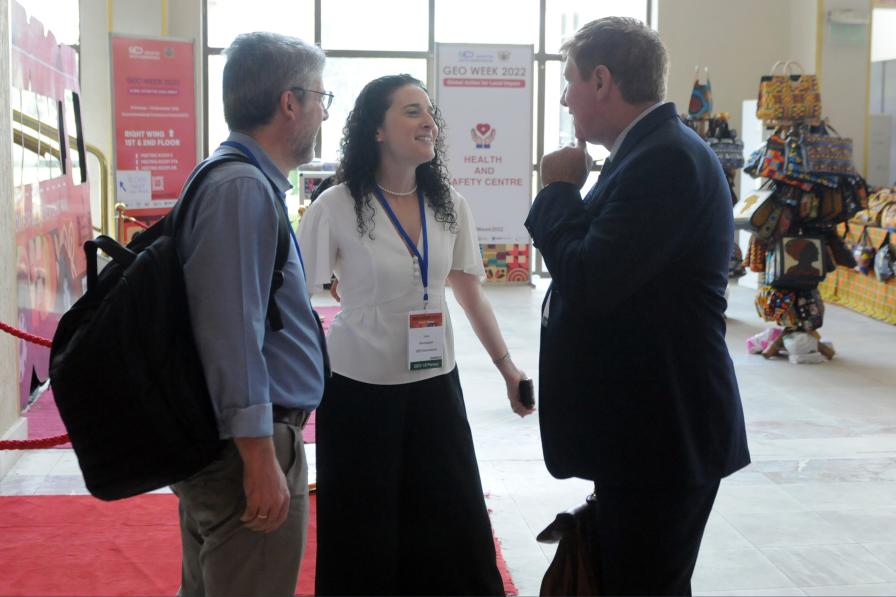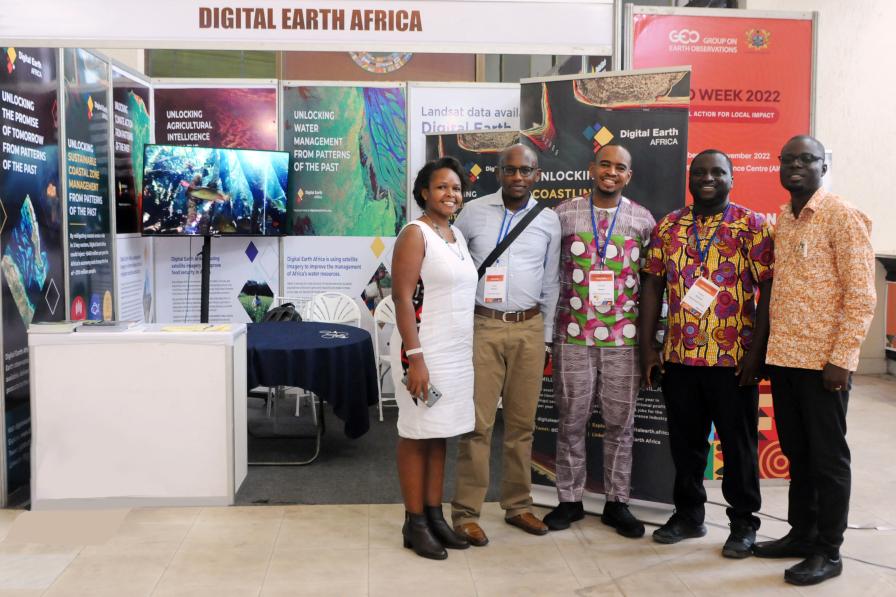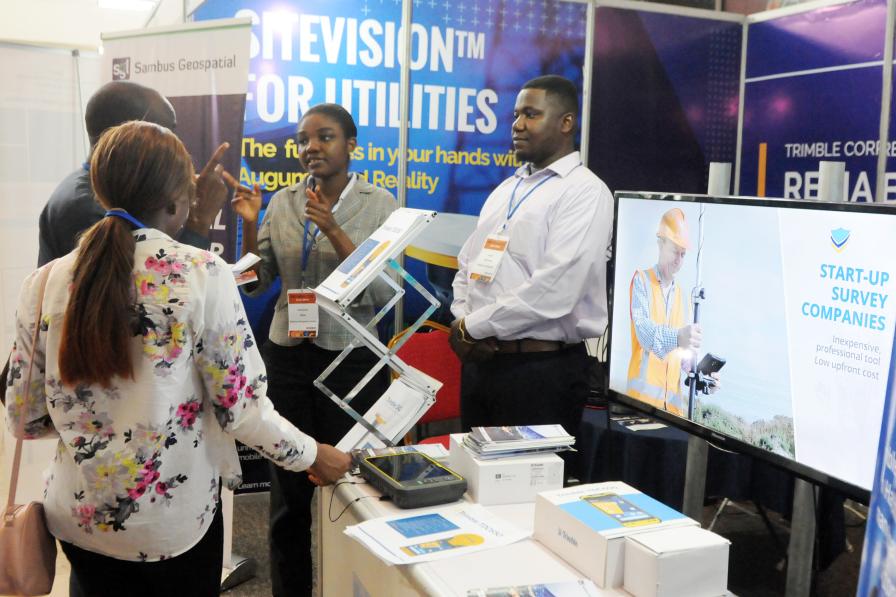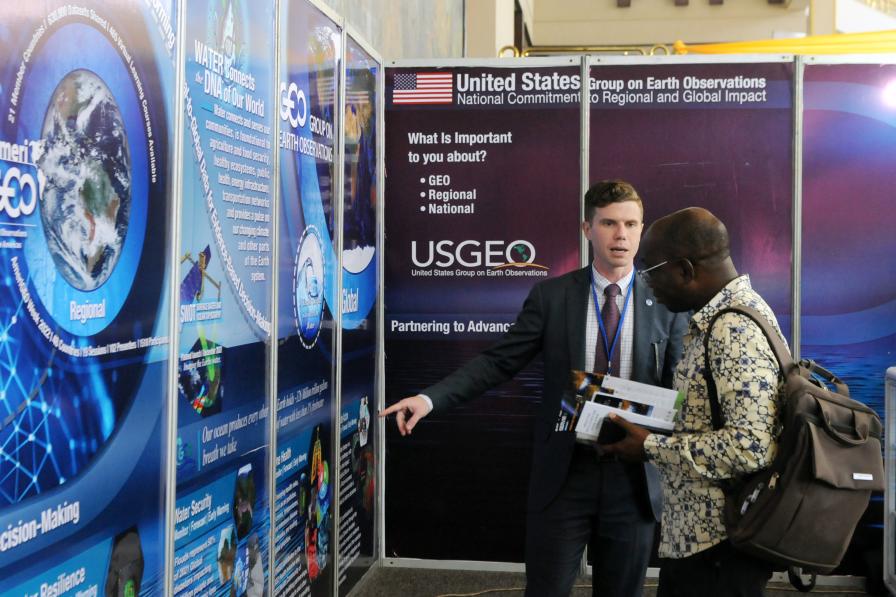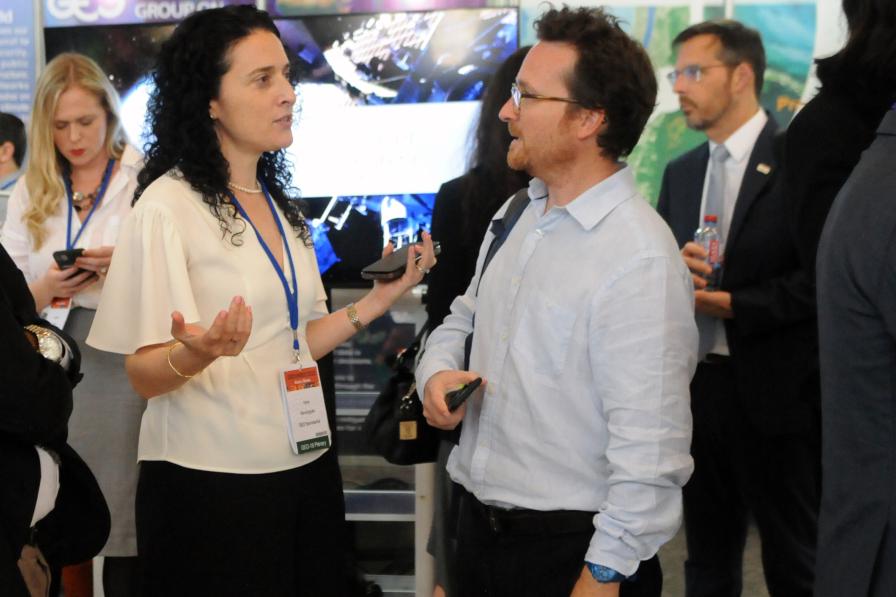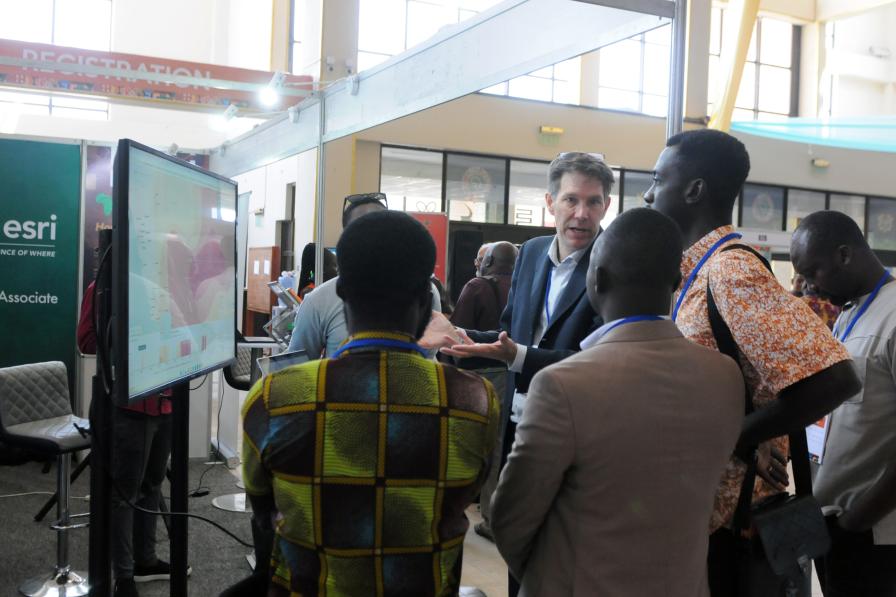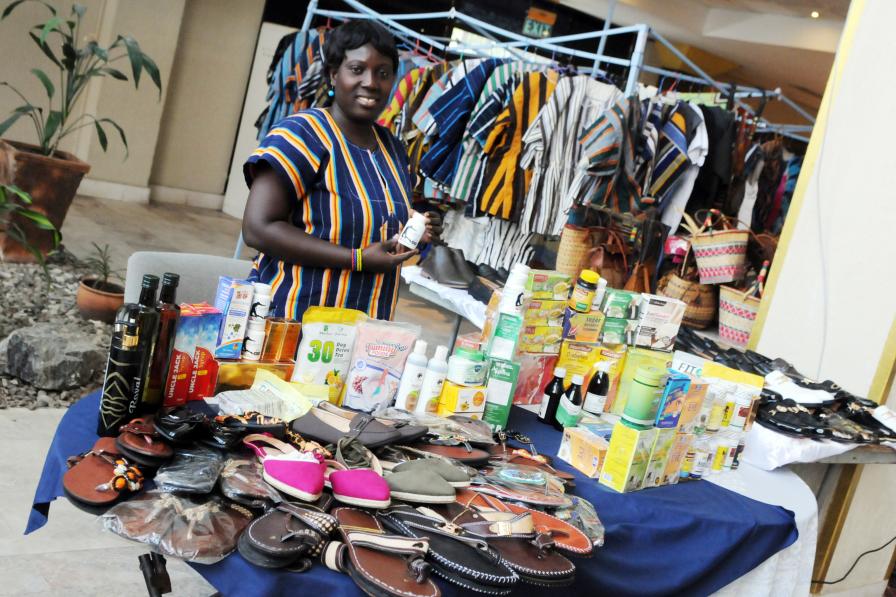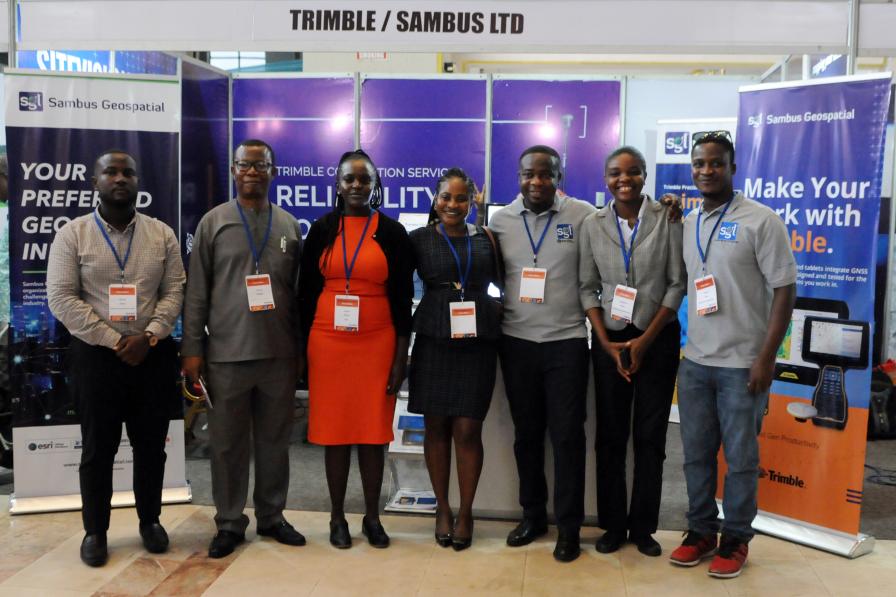GEO Week 2022 entered its second day in Accra, Ghana, with participants attending two launches and a grants’ award ceremony, alongside events led by industry, youth, and other side events. The Group on Earth Observations (GEO), an intergovernmental partnership of more than 100 countries plus the European Commission, promotes the extensive use of earth observations (EO) data, information, and knowledge for research, policy, decisions, and action.
Hosted by the AfriGEO Symposium, Davis Adieno, Global Partnership for Sustainable Development Data (GPSDD), introduced the launch of the Africa Data Capacity Accelerator for Climate & Health in partnership with data.org’s Capacity Accelerator Network. Ronda Zelezny-Green, Capacity Accelerator Network at data.org, introduced the Network noting its support for data to enhance social impact. She stressed that data.org works to increase data capacity, using the data commons and identifying best practices for social impact.
Participants also welcomed the launch of the second phase of SERVIR West Africa, a joint initiative of NASA and USAID, which uses EO to assess water resources in water-scarce regions in West Africa, assists in agriculture planning and tracks water resources for herders and pastoralist communities. During the launch, Jo Lesser-Oltheten, Director of West Africa Mission, USAID, underlined the importance of SERVIR’s use of cutting-edge data to provide solutions to 21st Century problems.
GEO Week 2022, AfriGEO participants also honored six recipients of the SERVIR West Africa Small Innovation Grant. The grants are expected to enable students from five African countries to further their research into the use of EO for various applications. During the closing session of AfriGEO, Zelezny-Green stressed that “we cannot afford not to do this data work” because it is the bedrock for climate action, Indigenous Peoples issues, healthcare, disaster risk reduction, and agriculture, among others. Amos Kabo-bah, Acting Dean for the International Relations Office, University of Energy and Natural Resources (UENR), called on all stakeholders to work together to transform decision-making processes through EO.
Participants also convened to engage in the industry- and youth-led discussions throughout the day. In the industry-track event on a “Recommended Risk and Reward Model for a successful Public-Private Partnership.” Emily Smail, GEO Blue Planet Initiative, noted that opportunities exist in Africa for private companies to sell ocean data infrastructure for public sector demand. Alessandra Casazza, UN Development Programme (UNDP), explained the complexity of an integrated analysis of drought resilience in the Horn of Africa, which included mapping tools overlaying pastoral communities’ risk, land-use changes, groundwater, evapotranspiration, reservoir and lake storages, information dissemination, crop production estimation, and market transparency.
During a side event on “innovative agriculture monitoring for improved food security,” Joost Teuben, University of Twente, launched the “Guidance Document on Good Practices for Designing, Implementing and Evaluating Capacity Development Interventions in GEOGLAM.” In the side event on “EO for ecosystem accounting in Ghana, Víctor Addabor, National Disaster Management Organization of Ghana, presented the first Digital Earth Africa study on Natural Capital Accounting in Ghana, particularly in the West Gonja region. Based on the estimated percentage of net gain, the main result shows the land cover change of different ecosystems inside the Mole National Park and in non-reserved areas.
The 18th GEO Plenary (GEO-18) will open on Wednesday, 2 November 2022.
All ENB photos are free to use with attribution. For the GEO Week 2022, please use: Photo by IISD/ENB | Diego Noguera.
To receive free coverage of global environmental events delivered to your inbox, subscribe to the ENB Update newsletter.
